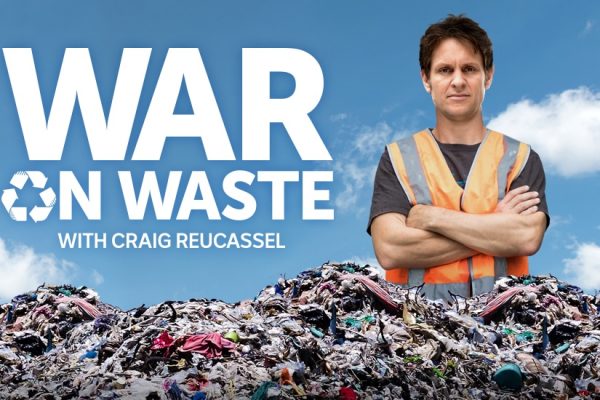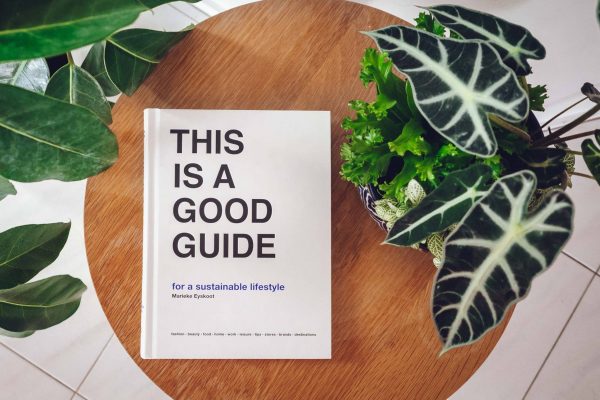It used to be tampons or pads. That was it.
Now there’s a whole world of low-waste, reusable period options that are more comfortable, cost-effective, and better for the planet, with far more choice than there was even five years ago.
From leakproof undies to menstrual cups and washable pads, period care has come a long way.
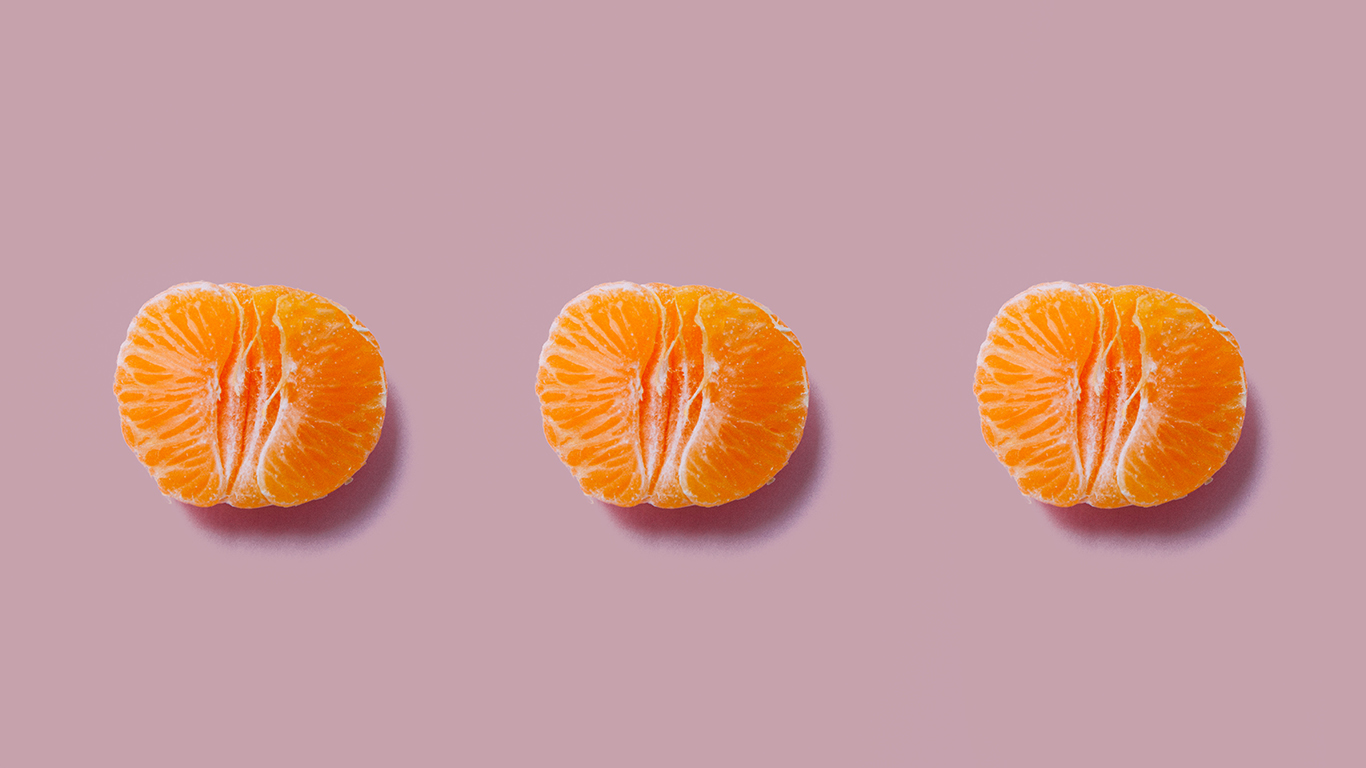
And while reusable products won’t be the right fit for everyone, they’re becoming more accessible, more inclusive, and much easier to use and way more comfortable than you might think.
These are our picks for the best reusable period products available in Australia and New Zealand right now.
Period Underwear
If there’s one product that’s reshaped the way we do periods, it’s this.
Period underwear looks and feels like regular undies, but with discreet absorbent layers that wick away moisture, lock in leaks, and keep you dry all day (or night). You rinse them out after use, toss them in the wash, and wear them again.
They’re especially handy for overnight protection, travel days, or when you just want a low-fuss, no-insertion option. With cuts ranging from high-rise briefs to gender-neutral boxers, there’s a pair to suit every style and flow.
What to know:
- Most pairs hold 1–4 tampons’ worth of fluid
- A full-cycle setup usually means 3–5 pairs
- On heavy days, carry a spare and a small wet bag
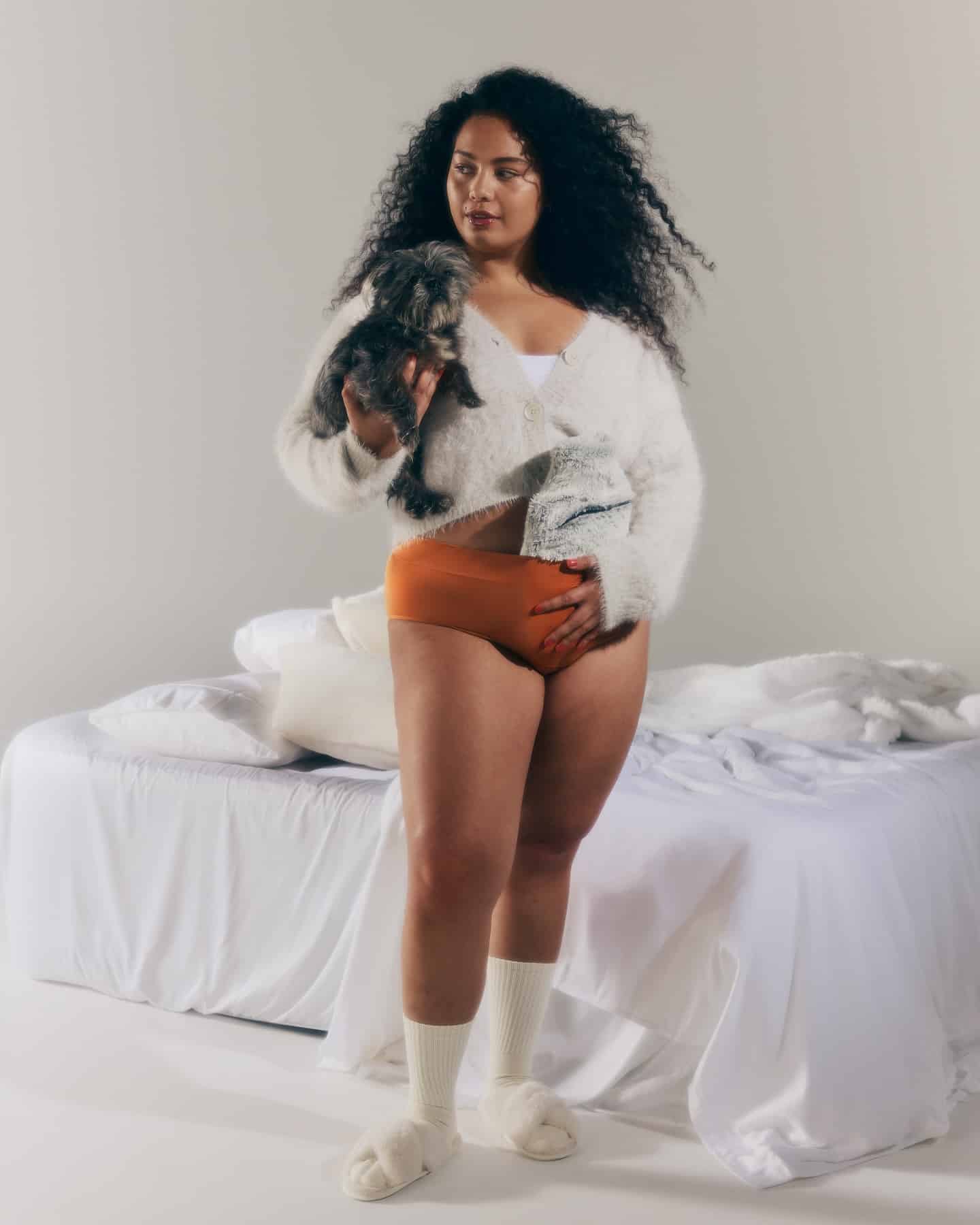
The Period Underwear Brands We love
Modibodi
Australia’s OG period underwear brand. With options from thong to boyleg and super-light to heavy-overnight absorbency, Modibodi has something for every body and every flow. Their biodegradable range adds a sustainability tick.
Scarlet
Four styles of absorbent underwear made with soft organic cotton. Their mesh-trimmed pairs and bike shorts feel a little more elevated. Pairs well with their menstrual cup for a bundle discount.
Femmze
Sydney-based and anything but daggy. Think high-waisted briefs, G-strings and even bike shorts with light–moderate to moderate–heavy absorbency. Femmze’s minimalist aesthetic includes deadstock mesh tops and a sports bra too.
Boody
Minimalist, comfy, and great value. Boody’s leak-proof pairs come in bikini or full brief styles and support light–heavy flows. Made from organically grown bamboo.
AWWA (NZ)
A New Zealand brand with Māori roots (the name means “river” or “flow”), Awwa offers flattering cuts that hold up to five pads’ worth without feeling bulky. They also make swimwear and donate 2% of revenue to fight period poverty.
Menstrual Cups & Discs
Menstrual cups have been around for decades, but they’ve recently become more mainstream.
Made from soft medical-grade silicone, these reusable cups sit inside the vaginal canal and collect rather than absorb your flow. They’re zero-waste, last up to ten years, and can hold more than a regular tampon, making them perfect for long days (or nights) between changes.
There’s a learning curve, sure, but once you find your fit, many people swear they’d never go back.
What to know:
- Cups come in different sizes and firmness levels — check the brand’s fit guide
- Softer cups suit those with lower cervixes or sensitive bladders
- You’ll need to sterilise your cup between cycles (a quick boil does the trick)
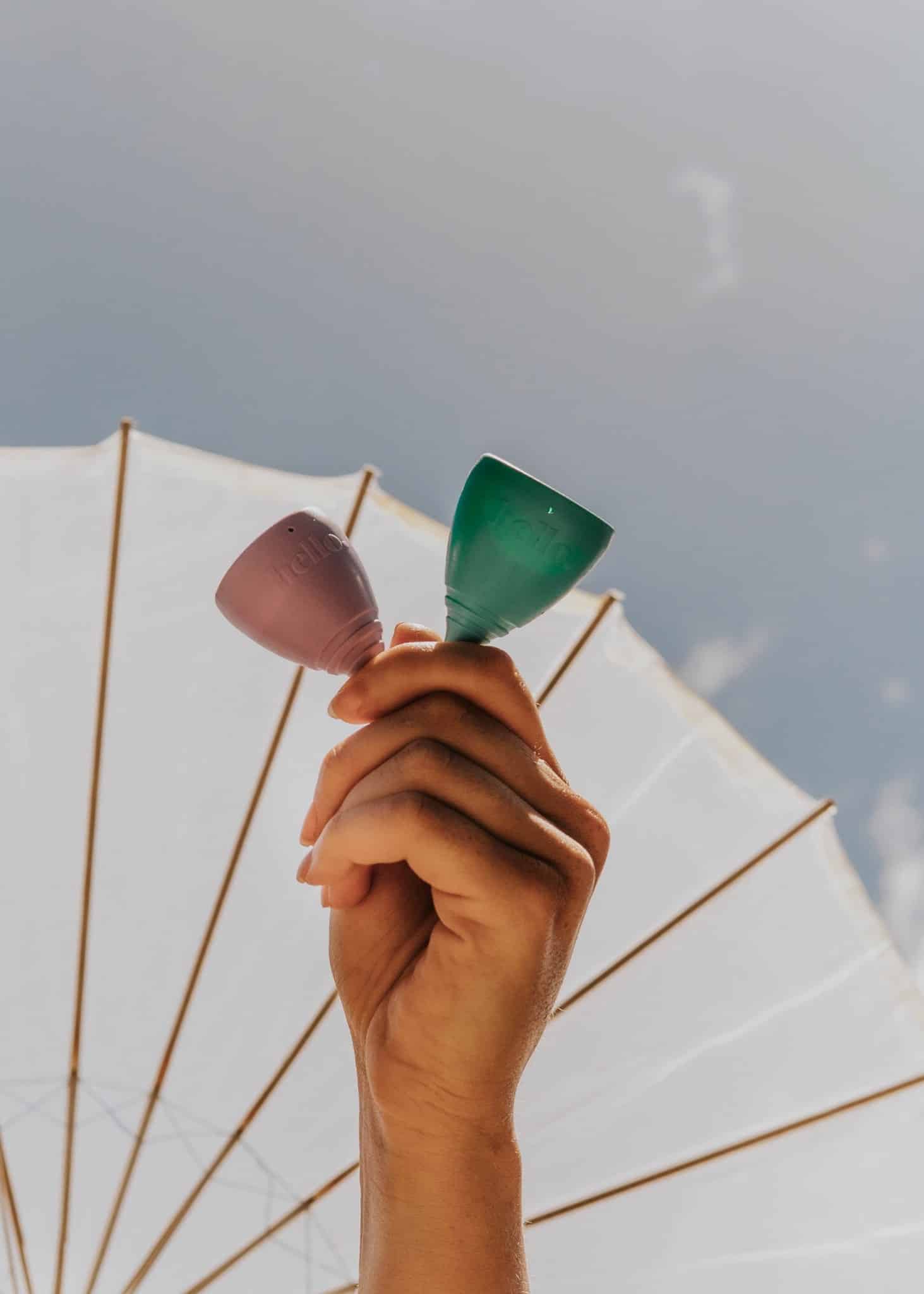
Menstrual Cup Brands to try
Hello Period
With a wide range of cup sizes and a beginner-friendly quiz, Hello is all about inclusivity. Their Hello Disc is IUD-friendly and can be worn during sex. All made from medical-grade materials and latex-free.
Scarlet
Scarlet’s cup is medical-grade silicone, with grip-friendly details for easier use. Comes bundled with undies or solo.
Bodyotics
A reusable menstrual disc designed to sit higher than a cup, the disc’s flat shape offers greater capacity and a secure, leak-free fit. Comes in two sizes so you can find the right fit, and each one is reusable for years.
Moxie
Stylish and travel-ready, Moxie’s menstrual cup comes with its own reusable pod. The brand’s been around since 2005 and has a long track record in thoughtful disposable care, too.
Reusable Pads
Reusable cloth pads work just like the ones you grew up with, but are made from soft, absorbent fabrics like cotton, bamboo or hemp. They usually have wings that snap around your underwear, and a waterproof backing to prevent leaks. Rinse them after use, wash with your laundry, and reuse for years.
They’re ideal for anyone easing into reusables, or as a comfy backup to cups or discs.
What to know:
- Available in a full range from liners to overnight pads
- Some fold into pocket squares for discreet storage
- Soaking in cold water before washing helps minimise staining
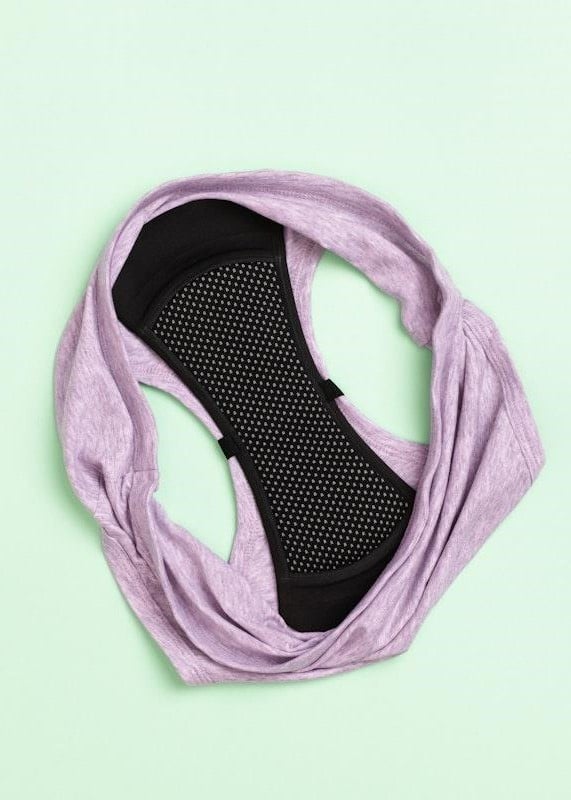
The best reusable pad brands
Scarlet Eve
Handmade in Perth with a cult following. These cloth pads come in a wide range of shapes, sizes, absorbency levels and natural fibres — from organic cotton to bamboo velour — with patterns that make cycle care feel a little more personal.
Hello Period
Known for their cups and inclusive design, Hello’s reusable pads are slim, absorbent, and designed for comfort. You can bundle them with cups or undies to build your own zero-waste kit.
Lil Helper
Originally a Canadian brand, now available in NZ, Lil Helper pads are highly absorbent with charcoal interiors to reduce odour and stains. The snap-on wings help keep them in place, and the brand offers clever value bundles too.
Organic & Low-Waste Disposable Options
Not everyone can (or wants to) go fully reusable, and that’s ok. Whether you’re travelling, feeling unwell, navigating chronic pain, or just want the convenience of disposables, there are still better options out there.
Organic tampons and pads are made with certified organic cotton, often without bleach, synthetic fragrance or plastic applicators. Some also use compostable packaging or biodegradable wrappers.
They’re not reusable, but they are gentler on your body and the environment than conventional period products.
What to know:
- Look for certifications like GOTS or OEKO-TEX to verify organic claims
- Cardboard applicators are more planet-friendly than plastic, but not always as comfortable
- Some of these products can be composted — check brand guidelines and composting setup
Organic Period Brands We Recommend
TOM Organic
One of Australia’s first certified organic tampon brands. Available in supermarkets and also offer reusable products now.
Moxie
While the Melbourne brand built its name on organic cotton disposables, Moxie also offers more sustainable options, including their reusable cup and curated care kits.
Tsuno
A social enterprise donating 50% of profits to women’s health and education. Their bamboo fibre pads are ultra-thin and beautifully packaged.cycle.

